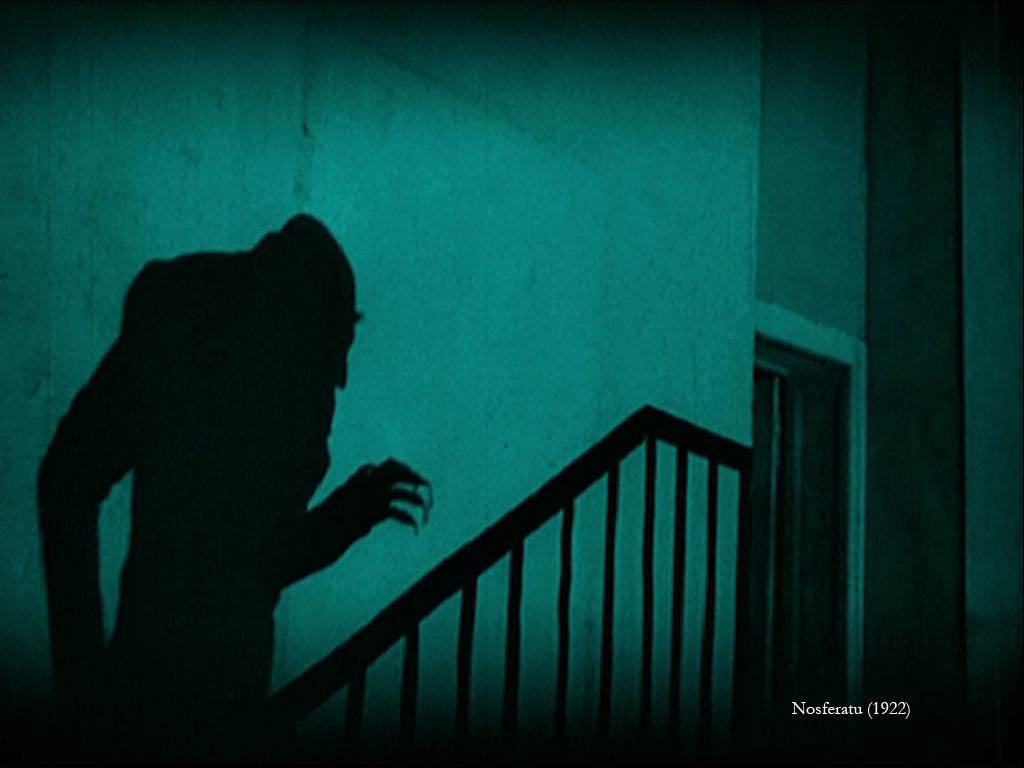
On September 16, my inspiring friends Jane Rutter and Simon Tedeschi will play my new work Blood Count at Government House, Sydney. It’s an excerpt from my Harp and Wind Quintet for flute and harp, played in a version for flute and piano. If you’re interested, ticket information is here.
As usual, I’ll post an electronic performance here until I can replace it with the performance from the premiere.
____
Sometimes, being a composer is like standing downwind from an unknown incident. You catch sounds and odors and the occasional object wafting your way. The sleuth in your imagination has to piece it together.
When I heard that Jane Rutter and Simon Tedeschi’s new concert was to be called The Vampire Diaries, I found myself thinking: if anything meets the definition of the original vampire diary, it’s the journal kept by Jonathan Harker, the hero of Bram Stoker’s novel Dracula.
Like James Joyce’s Ulysses or Herman Melville’s Moby Dick, Dracula is one of those books that everybody knows about, but few have read. So not many people know that Dracula is an epistolary novel – a book written entirely in the form of journal entries, letters, and other documents. And the first diary entry is easily the most suspenseful part of the book.
Solicitor Jonathan Harker is journeying by coach from London to Transylvania to meet a Count Dracula who wants to purchase some English real estate. Initially, Harker is charmed by his ride through the picturesque landscapes of Eastern Europe and its unusual delicious food.
But the deeper he gets into the Carpathian mountains, the more he encounters locals who are frightened for him. They attempt to dissuade him from his journey but he doesn’t understand their language, and upon failing, they give him protective blessings and crucifixes. Now fearful, he continues his ascent to Castle Dracula, encountering howling wolves and mysterious blue flames on the way.
Thus ends the masterpiece of an opening chapter – Harker’s first diary entry– of Dracula.
Thinking about Dracula made me remember something I’d completely forgotten till now. When I was about 12, I fantasized about composing a ballet to the story. But the idea of a dancing vampire was ridiculed by my friends. Then to my delight I discovered two German Romantic zauber (magic) operas, by Marschner and Lindpainter respectively, both called Der Vampyr and I figured that if vampires could sing opera, they could dance ballet. But I never did get around to writing it.
All this made me think – why are we so fascinated by supernatural stories? Indeed, why do we like stories that scare us?
As I was reflecting on this, a book just appeared. I was throwing out the day’s garbage, and in the street bin was this book called The Angel Is Near by Deepak Chopra.
This is a strange book. It’s a mystery-thriller novel about the US military trapping an angel on earth. I’d never read any Chopra before, though I knew he was one of the world’s most famous writers on spirituality; I just didn’t know he wrote any fiction. I admit I didn’t find the story enjoyable, but sprinkled throughout the book were these sublime passages labelled ‘The Angel’s Voice’.
The word ‘angel’ means ‘messenger’ (from the Greek angelos, ἄγγελος), and these passages were a message for humanity:
Humanity is perfect and divine. But right now, humanity is playing a game of hide-and-seek with itself. You, humanity, have chosen to hide from your own perfection so that you may seek it again. In order to truly enjoy light, you wanted to experience darkness as well. And so you chose to experience fear in all its guises and depths. The abject loneliness. Being hurt. The terrible guilt of having done wrong. The belief that you deserve punishment or to be abandoned. The bottomless depression. Confusion, stress, cynicism, scepticism. Hiding from courage. Then, when each of you has had enough of the game, you’ll make a choice to emerge from the darkness; light and your divinity will be waiting for you.
After such a profound message, the question of why we like stories that scare us isn’t so trivial after all.
The answer is, ultimately, just to feel, because to feel anything is to feel human. Fear is a rush. Any feeling with intensity, whether it’s fear or love, is thrilling. We get a thrill from scary stories, but we also get it from stories that make us cry or guffaw or hate or be indignant.
The flow of adrenaline and endorphins that comes with this thrill is a uniquely human experience – as opposed to a spiritual one, where the most intense of ecstasies are tranquil, where one does not leap with joy but is stilled by it. To be moved by emotion is human; to be unmoved despite emotion is something transcendent.
The music I wrote is what drifted my way as I sat with these thoughts. Part 1’s jagged flute melody and luscious but restive piano chords sound like a phantasmagoric music that wouldn’t be out of place accompanying a chilling reading of the diary of Jonathan Harker.
Part 2 intrigues me. I think it must be the remembered music from the Romantically inspired Dracula ballet I never completed when I was 12; clearly it’s founded on the German operas that pleased me so much. As does it please me that my unconscious mind dredged up this music so many years later.
I love the music for Part 3, and I love the way it was written. It was a process of subtraction. I heard a solid mass of sounds, and I knew somewhere within was the angel’s voice. This process reminded me of a quote attributed to Michelangelo, who supposedly said he didn’t so much create David because David was already in the marble, but freed him by chipping away everything that wasn’t David. I didn’t write these beautiful sounds, but the angel’s voice was already in the vibrations and I removed everything that wasn’t the angel’s voice.
Why Blood Count for a title? It’s a pun and a tribute. The music of Billy Strayhorn is special to me, and Blood Count was his last composition, written in hospital and recorded by Duke Ellington posthumously. I wanted to use the title, and in the process included some chords and motifs when writing the music for Part 1 as well as for the magical epilogue. ‘Count’ is a pun – not just for Count Dracula, but also because the vampires of Eastern European legends are obsessive-compulsive: one way to thwart a vampire is to throw rice at it, as it will stop to count every grain. You need to know this for when you next encounter one of the undead.

